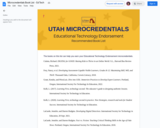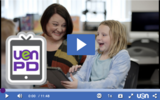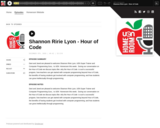
This brief online article introduces readers to 5 effective skills for safe, culturally sensitive, and ethical online communication.
- Subject:
- Professional Learning
- Material Type:
- Reading
- Provider:
- Browser Media
- Date Added:
- 10/02/2023

This collection contains all of the microcredentials and resources within the Utah Microcredentials Competency 3: Ed Tech stack.

This brief online article introduces readers to 5 effective skills for safe, culturally sensitive, and ethical online communication.

True engagement is fundamental to learning but as Daniel Pink shares in Drive, “People don’t engage by being managed. They don’t engage by being controlled. The way that people engage is if they get there under their own steam, and that requires sometimes enormous amounts of autonomy over people’s time (when they do what they do), over their technique (how they do it), over their team (who they do it with) and over their task.” This article shows the components of developing learner agency in students.

When students get to make decisions about their learning, it can be powerfully motivating. In any environment that requires attendance, there’s a significant risk of disengagement. Remove choice and you breed passivity or, worse, defiance. This article reviews student choice in several contexts and how to support students making choices in the classroom.

The books on this list can help you earn your Educational Technology Endorsement microcredentials.

On this episode of UEN PDTV, Katie Blunt travels to Manti Elementary where computer science specialist, Julia Bratton, demonstrates how she incorporates critical thinking, project-based learning, and computational thinking into her classroom.

Dani and Jared are pleased to welcome Shannon Ririe Lyon, UEN Super Trainer and Computer Programming Guru, to UEN Homeroom this week. During our conversation on the Hour of Code we discuss topics like: why the Hour of Code is such a successful program, how teachers can get started with computer programming beyond Hour of Code, the benefits of having students get involved with computer programming, and how students can grow intellectually through programming.

"You know the hardest thing about teaching with project-based learning? Explaining it to someone." In this article, Heather Wolpert-Gawron presents her "elevator speech" about PBL to help educators clearly understand what it's all about.

Computational thinking is the problem-solving skill of the digital world. It’s powerful when integrated into the curriculum because students engage in experiential learning of content-related problems, such as how to identify the tone of a story or how to best address pollution in their local area. In this article, Nick Pinder explains why educators should integrate computational thinking into their curriculum.